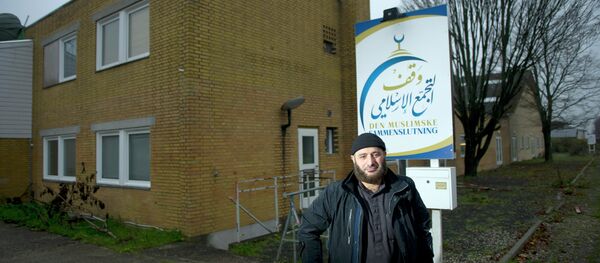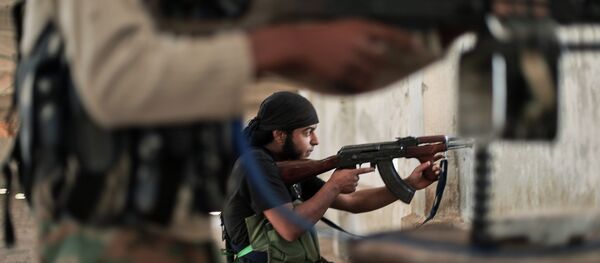The issue of how to treat jihadis returning from fighting alongside groups like ISIL has been widely debated in the West, and particularly in Scandinavia — where governments and local authorities have seemingly taken a more collaborative approach on the matter.
Rather than locking up and charging people who have been fighting in Syria and Iraq, many local authorities in Nordic countries have placed an emphasis on re-integrating those returning to their home countries by providing counseling and support services to help them feel less alienated from wider society.
Uuhhh… => Sweden To Use Taxpayer Dollars To Support ISIS Fighters? http://t.co/cw6r2NIaxL pic.twitter.com/rAinucSfhI
— Steven Crowder (@scrowder) May 19, 2015
Some of the programs have been widely praised, including efforts undertaken by authorities in the Danish city of Aarhus to reduce the threat of young people becoming radicalized.
Debate Over Supporting Returning Jihadis
A support program for returning ISIL jihadis in Sweden's Örebro Municipality has caused a stir. The program suggests that returning fighters can obtain "psychological help to overcome traumatic experiences they may have suffered while fighting in Iraq and Syria."
The re-integration approach has been backed by the City of Stockholm's strategy on violent extremism, while some local councilors in Sweden have suggested jihadis should be offered employment after returning to the country to avoid a greater sense of alienation and subsequent extremist actions.
Sweden’s welfare bonanza for returning ISIS jihadists http://t.co/TTlNadQXKN pic.twitter.com/eDyYpV8FAP
— Diyar (@DKurdistan) May 18, 2015
Councilor Rasmus Persson told Swedish program Tvärsnytt:
"We have discussed how we should work for these guys who have come back, and to prevent them from returning to the fighting, and that they should be helped to process the traumatic experiences they have been through."
Such suggestions have been criticized by many who argue that allowing jihadis to return straight back into society raises the risk of more people becoming exposed to extremist thoughts and the threat of greater radicalization.
Taxpayers Paying for Terrorists
The issue of using taxpayer money to pay for terrorist rehabilitation has attracted further criticism and comes after it was revealed that more than 30 Danish citizens received $57,000 worth of unemployment benefits while they were fighting alongside ISIL in Syria.
The recent revelations led Peter Skaarup of the Danish People's Party to say the government was "careless" when dealing with extremists.
However, as plans to expand reintegration programs continue, Sweden's official coordinator against violent extremism, Mona Sahlin, has put forward the suggestion of using taxpayer money to pay for the so-called 'jihadi rehab' services.
Progressivism has so infected Sweden that it now rewards ISIS fighters who return back to Sweden after fighting in middle east. What? Yes
— Dr. Anthony Napoleon (@Napoleonlegal) May 16, 2015
These suggestions triggered widespread condemnation from critics, which led to a response from a Swedish soldier stationed in Afghanistan, who asked if similar efforts were made to support and provide employment to soldiers returning from battle.
"In a few months, I'm back in Sweden after being deployed in Afghanistan, against the Taliban and others who have really [been] jeopardizing development in this very sore country," Frederick Brandberg wrote.
"There is no permanent job waiting for me when I come home," he added.
"It would be wonderful if I was met with a comparable program after my homecoming, after which I could feel safe in having a regular job, with monthly income and a social stable situation in the society where I wouldn't need to wonder whether I'm wanted or not."
Government estimates in 2014 stated that between 250 and 300 Swedish citizens had traveled to Syria and Iraq to fight alongside jihadist groups such as ISIL.




